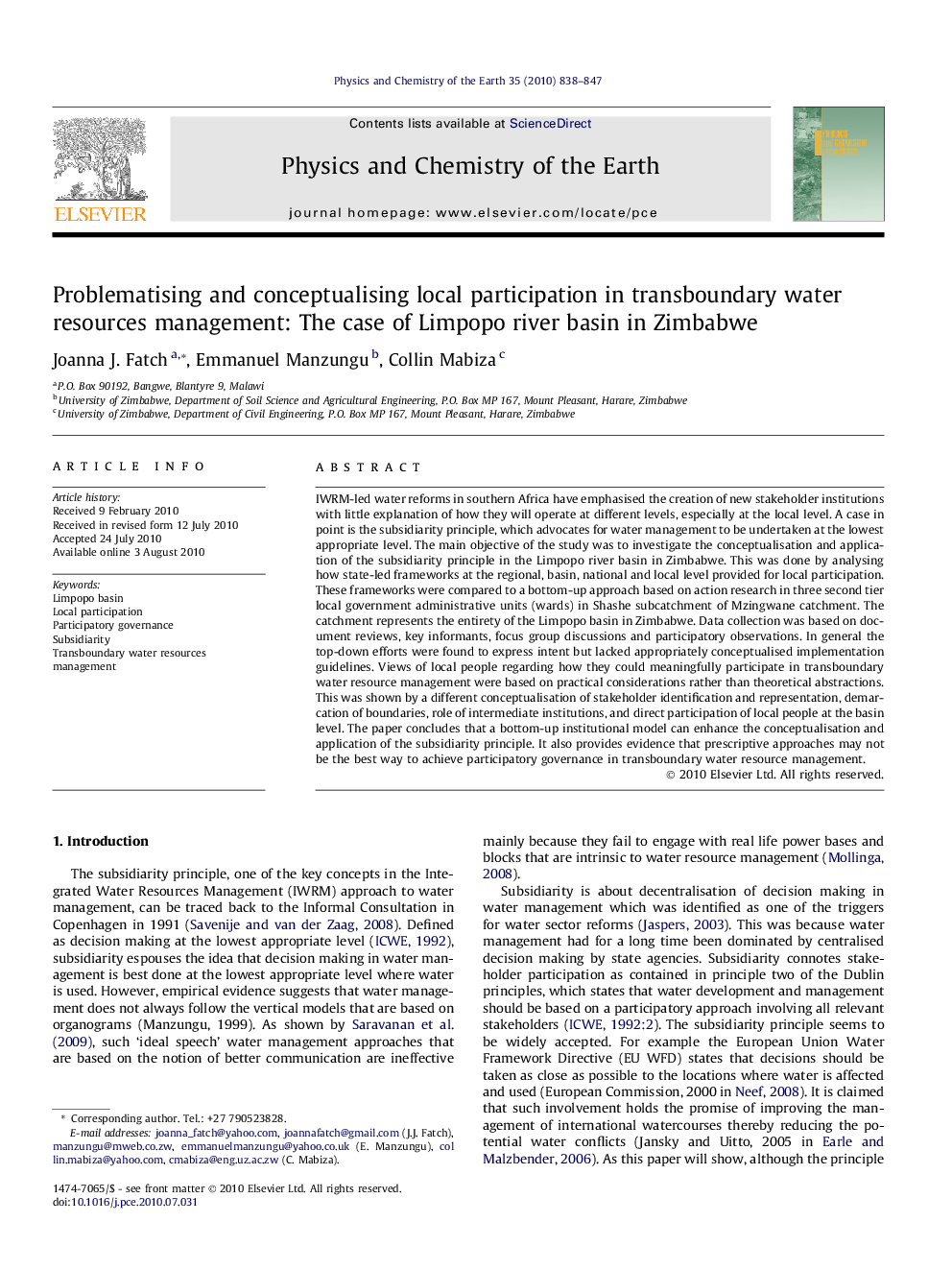| Article ID | Journal | Published Year | Pages | File Type |
|---|---|---|---|---|
| 4721792 | Physics and Chemistry of the Earth, Parts A/B/C | 2010 | 10 Pages |
IWRM-led water reforms in southern Africa have emphasised the creation of new stakeholder institutions with little explanation of how they will operate at different levels, especially at the local level. A case in point is the subsidiarity principle, which advocates for water management to be undertaken at the lowest appropriate level. The main objective of the study was to investigate the conceptualisation and application of the subsidiarity principle in the Limpopo river basin in Zimbabwe. This was done by analysing how state-led frameworks at the regional, basin, national and local level provided for local participation. These frameworks were compared to a bottom-up approach based on action research in three second tier local government administrative units (wards) in Shashe subcatchment of Mzingwane catchment. The catchment represents the entirety of the Limpopo basin in Zimbabwe. Data collection was based on document reviews, key informants, focus group discussions and participatory observations. In general the top-down efforts were found to express intent but lacked appropriately conceptualised implementation guidelines. Views of local people regarding how they could meaningfully participate in transboundary water resource management were based on practical considerations rather than theoretical abstractions. This was shown by a different conceptualisation of stakeholder identification and representation, demarcation of boundaries, role of intermediate institutions, and direct participation of local people at the basin level. The paper concludes that a bottom-up institutional model can enhance the conceptualisation and application of the subsidiarity principle. It also provides evidence that prescriptive approaches may not be the best way to achieve participatory governance in transboundary water resource management.
